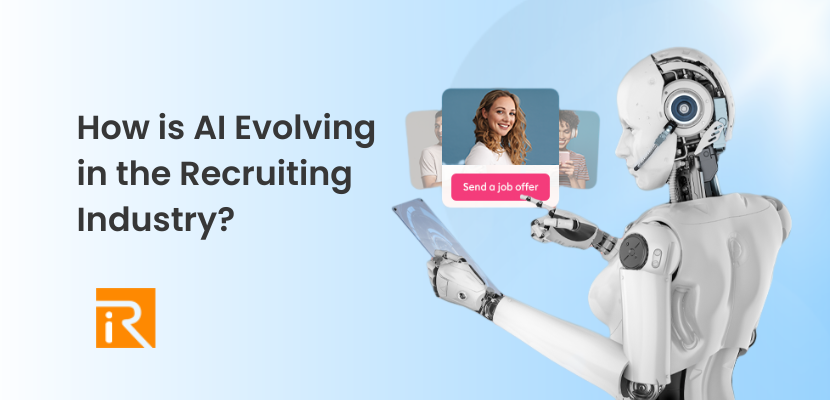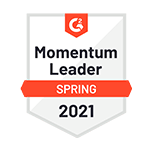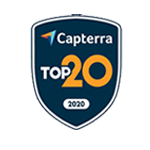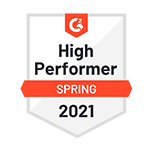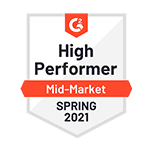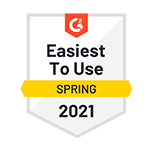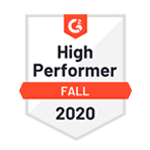AI is making a big impact in the recruiting industry, improving processes and candidate experiences. This is creating new opportunities for growth. Employers are benefitting from valuable insights provided by AI. These changes also affect job seekers.
The Rise of AI in Recruiting
What is AI?
AI, which stands for artificial intelligence, describes how machines can perform tasks that usually need human intelligence. These tasks include visual perception, speech recognition, decision-making, and language translation. Additionally, designers can create AI systems that learn from experience, adapt to new situations, and enhance their performance over time.
AI technology has recently made significant progress in areas like machine learning, natural language processing, and computer vision. Therefore, AI’s advancements have enabled various industries, including recruitment, to use it. These technologies enable AI systems to analyze vast amounts of data, identify patterns, and make predictions based on that data.
AI in recruiting: A brief history
The use of AI in recruiting dates back to the early 2000s, when companies started using automated resume screening tools to filter through large volumes of job applications. Meanwhile, companies have applied AI to various stages of the recruiting process, including candidate sourcing, resume screening, interview scheduling, and even candidate engagement and onboarding.
Today, AI-powered recruiting tools are becoming increasingly sophisticated, using machine learning algorithms to analyze candidate data and identify the most qualified candidates for a given position. These tools can also help automate repetitive tasks, such as scheduling interviews and sending follow-up emails, freeing up recruiters to focus on more strategic tasks.
The impact of AI on the recruiting industry
The rise of AI in recruiting has had a significant impact on the industry, offering a range of benefits for both recruiters and job seekers. For recruiters, AI-powered recruiting tools can help save time and reduce costs, improve the accuracy of candidate matching, and provide valuable insights into hiring trends and candidate behavior. Likewise, for job seekers, AI can help improve the candidate experience, providing personalized job recommendations and facilitating faster, more streamlined application processes.
However, as with any technology, there are also potential drawbacks to the use of AI in recruiting. These include the risk of biased algorithms, the lack of human touch in the recruiting process, and the potential for over-reliance on technology.
AI is exciting for recruiting and can transform how recruiters and job seekers approach hiring. AI saves time, reduces costs, and improves accuracy while providing a personalized and efficient experience. However, ethical use is important and potential drawbacks should be considered.
AI-powered Recruitment Tools
AI-powered recruitment tools are designed to assist HR professionals in automating various recruitment processes to make the hiring process more efficient and effective. These tools can help reduce the workload of recruiters and help them focus on more important tasks.
Resume screening
Resume screening tools use machine learning algorithms to analyze resumes and identify the most qualified candidates for a particular position. Therefore, these tools can help recruiters quickly and efficiently sift through large numbers of resumes, saving them time and effort.
Chatbots
An AI-powered virtual assistants that can engage with job candidates to answer their questions and guide them through the recruitment process. Additionally, they can provide personalized assistance to candidates, improving their overall experience and increasing the likelihood that they will accept a job offer.
Video Interviews
Video interviews are becoming increasingly popular as a way to screen candidates remotely. Additionally, AI-powered video interview platforms can use natural language processing to analyze a candidate’s responses and body language to help identify the most qualified candidates for a position.
Candidate Matching
Candidate matching tools use algorithms to match job candidates with job openings based on their skills, experience, and other qualifications. So, these tools can help recruiters identify the most qualified candidates quickly and efficiently.
Predictive Analytics
Predictive analytics tools use machine learning algorithms to analyze data from past hiring processes to identify patterns and make predictions about future hiring needs. Likewise, these tools can help HR professionals make more informed decisions about where to allocate resources and which candidates are most likely to be successful in a particular position.
Benefits of AI in Recruiting
AI-powered recruitment tools offer numerous benefits for HR professionals and organizations. Here are some of the key advantages of using AI in recruiting:
Time and cost savings
AI can automate many of the repetitive and time-consuming tasks involved in the recruiting process, such as resume screening and scheduling interviews. In a similar way, best leaves for procreate can automate most of your graphic design needs. We use smart AI tools. Consequently, this can save HR professionals significant amounts of time and reduce overall recruiting costs.
Improved candidate experiences
Chatbots and other AI-powered tools can provide candidates with personalized assistance and support, making the recruitment process more efficient and enjoyable. Therefore, this can help create a positive impression of the organization and increase the likelihood that candidates will accept job offers.
Increased diversity and inclusivity
AI-powered tools can help eliminate bias in the recruiting process by focusing on objective criteria such as skills and qualifications, rather than factors such as gender, ethnicity, or age. Therefore, this can help increase diversity and inclusivity in the workplace.
Improved hiring accuracy
AI-powered tools can analyze large amounts of data to identify the most qualified candidates for a particular position. Therefore, reducing the risk of hiring mistakes and improving the overall quality of new hires.
Data-driven insights
By analyzing data from past hiring processes, AI can provide HR professionals with valuable insights and metrics, such as time-to-hire and candidate conversion rates. So, this can help organizations optimize their recruiting strategies and improve overall hiring outcomes.
Potential Drawbacks of AI in Recruiting
While there are numerous benefits to using AI-powered recruitment tools, there are also some potential drawbacks that organizations should be aware of. Here are some of the key concerns related to the use of AI in recruiting:
Biased algorithms
AI algorithms are only as unbiased as the data they are trained on, which can perpetuate bias and discrimination in the recruiting process. Therefore, this can lead to unfair hiring practices and limit diversity and inclusivity in the workplace.
Lack of human touch
AI-powered tools can provide an efficient and streamlined recruiting process, but they may also lack the personal touch that human recruiters can provide. This can lead to a less engaging and satisfying candidate experience.
Inability to assess soft skills
While AI can be effective at assessing hard skills and qualifications, it may struggle to evaluate a candidate’s soft skills, such as communication and collaboration. This can limit the overall effectiveness of AI in the recruiting process.
Over-reliance on technology
Organizations may become overly reliant on AI-powered tools, potentially leading to a reduction in the importance of human judgment and decision-making in the recruiting process.
Limited transparency
The use of AI in recruiting may make it difficult for candidates to understand how hiring decisions are being made, potentially leading to a lack of trust and transparency in the recruiting process.
Ensuring Fairness and Ethical Use of AI in Recruiting
Importance of fairness and ethical use of AI
Fairness and ethical use of AI are critical in recruiting because AI algorithms can perpetuate existing biases and discrimination, leading to unfair outcomes for job candidates. By ensuring that AI is used ethically and fairly, employers can create a more equitable hiring process that benefits everyone involved.
Mitigating bias in AI algorithms
Mitigating bias in AI algorithms is an essential step in creating a fair and ethical recruitment process. To do this, employers must identify and address any potential biases in their AI algorithms. They can accomplish this by using diverse data sets and testing their algorithms for fairness.
Ensuring transparency and accountability
Transparency and accountability are essential for ensuring that AI is used ethically in recruitment. Employers must be transparent about how they are using AI in their hiring process and accountable for any decisions made by the algorithm. This includes providing candidates with clear information about how their data is being used and ensuring that AI-based hiring decisions are explainable and fair.
Creating a diverse and inclusive AI workforce
Creating a diverse and inclusive AI workforce is critical for avoiding bias and ensuring fairness in recruitment. Employers must prioritize diversity and inclusion in their AI development teams and ensure that their algorithms are tested for bias and fairness across a diverse range of populations.
Legal considerations
Legal considerations are also essential in ensuring the ethical use of AI in recruitment. Employers must follow anti-discrimination laws and regulations. They must consider legal risks when using AI for hiring. Employers should be open about their use of AI in hiring to comply with regulations and prevent legal problems.
AI’s Impact on Job Seekers
AI has significantly impacted the job-seeking process for candidates, and it’s crucial to understand its implications.
Changes in the recruitment process
Changes in the recruitment process are among the most significant impacts of AI on job seekers. AI algorithms are increasingly used to screen and filter resumes, evaluate candidates’ qualifications, and even conduct initial interviews. This automation can speed up the process but can also introduce new challenges, such as bias and reduced personal interaction.
Impact on job search strategies
AI’s impact on job search strategies is also significant. Candidates must learn how to optimize their resumes for AI algorithms and tailor their applications to job postings. Job seekers must also adapt to new recruitment platforms and technologies, such as virtual job fairs and video interviews.
Potential for discrimination
Potential for discrimination is a critical concern with AI’s increasing use in recruitment. Algorithms can perpetuate existing biases, leading to unfair outcomes for certain groups of job seekers. For example, AI may inadvertently discriminate against women, minorities, or individuals with non-traditional backgrounds.
Opportunities for upskilling and reskilling
Opportunities for upskilling and reskilling are a potential positive outcome of AI’s impact on job seekers. As AI and automation continue to reshape the job market, candidates can upskill and reskill to remain competitive. This includes developing technical skills, such as data analysis or programming, or soft skills, such as adaptability and creativity.
Future of AI in Recruiting
The future of AI in recruiting is poised for significant advancements, which will bring about both opportunities and challenges.
Advancements in AI technology
Advancements in AI technology will continue to transform the recruiting process. Machine learning algorithms can analyze large volumes of data, identify patterns, and make predictions with high accuracy, helping recruiters find the best candidates for the job.
Integration with other recruitment tools
Integration with other recruitment tools is another area of growth for AI in recruiting. For example, AI can be integrated with applicant tracking systems (ATS) and candidate relationship management (CRM) tools, streamlining the recruitment process and improving efficiency.
Personalization of recruitment experiences
Personalization of recruitment experiences is also a potential outcome of AI in recruiting. Recruiters can use AI to tailor job postings and application processes to candidates’ interests and qualifications, creating a more engaging and personalized experience.
Increased automation
Increased automation is another trend in AI’s future in recruiting. AI can automate recruitment tasks like resume screening and interview scheduling, freeing up recruiters to focus on higher-level tasks.
Ethical considerations
In the future of AI in recruiting, we must also take into account ethical considerations. To avoid discrimination and ensure fair evaluation of candidates, we must ensure that AI algorithms are fair, transparent, and accountable.
Looking for an AI-powered recruitment ATS to optimize your hiring process? Look no further than recruitBPM. Our state-of-the-art software leverages the latest AI technology to help you find, screen, and retain top talent more efficiently and effectively. Contact us today to learn more about how our AI-powered recruitment ATS can revolutionize your recruitment process and help you stay ahead of the competition in the talent market.
Conclusion
AI is transforming recruiting and has the potential to revolutionize hiring and job searching. AI tools offer benefits like time and cost savings, better candidate experiences, and diversity and inclusivity. However, ethical use and fairness must be considered. The future of recruiting looks promising with increased automation, personalization, and data-driven insights.
FAQs
Q: What is AI in recruiting?
A: Recruiting AI uses technology to automate recruitment tasks. This includes tools like resume screening algorithms, chatbots, and predictive analytics software that help recruiters save time and find the best candidates for open positions.
Q: What are some AI-powered recruitment tools?
A: Recruiters today have several AI-powered recruitment tools available to them. They use tools like resume screening software to scan resumes and find relevant skills and experience. Companies use chatbots to handle basic candidate inquiries, and predictive analytics software helps them identify top candidates for a role.
Q: What are the benefits of AI in recruiting?
A: The use of AI in recruiting can provide many benefits to companies and recruiters. Using recruitment technology can save time and money, provide better experiences for candidates, increase diversity and inclusivity, improve hiring accuracy, and give recruiters data-driven insights for informed decision-making.
Q: What are the potential drawbacks of AI in recruiting?
A: While using AI in recruiting offers many benefits, it’s important to consider potential drawbacks like biased algorithms perpetuating discrimination, a lack of human touch, inability to assess soft skills and cultural fit, over-reliance on technology, and limited transparency making it difficult for candidates to understand selection decisions.
Q: How recruiting use AI ethically?
A: Ethical use of AI in recruiting is critical to avoiding discrimination and ensuring transparency and accountability. To achieve this, recruiters can take steps like mitigating bias in AI algorithms, ensuring transparency and accountability throughout the recruitment process, creating a diverse and inclusive AI workforce, and considering legal implications when developing and using AI tools in recruiting. By doing so, recruiters can use AI to enhance the recruitment process while maintaining fairness and equity for all candidates.


